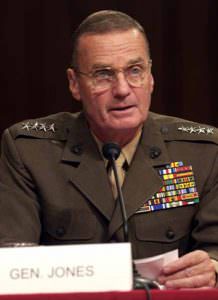Top Commander for Mideast Resigns
Adm. William Fallon, head of the U.S. Central Command, resigned on Tuesday, explaining that his reputation as an obstacle to President Bush's military designs had become too much of a distraction. Fallon was often reported to be a thorn in the side of the president and his other military advisers, a role both the admiral and administration officials strongly deny.Adm. William Fallon, head of the U.S. Central Command, resigned on Tuesday, explaining that his reputation as an obstacle to President Bush’s military designs had become too much of a distraction. Fallon was often reported to be a thorn in the side of the president and his other military advisers, a role both the admiral and administration officials strongly deny.
Your support matters…Los Angeles Times:
WASHINGTON — The Pentagon on Tuesday announced the abrupt resignation of the commander overseeing the wars in Iraq and Afghanistan who was seen as an internal critic of the Bush administration’s troop decisions in Iraq.
The resignation of Navy Adm. William J. Fallon, head of U.S. Central Command, comes at a crucial time — a month before highly anticipated recommendations for the future of U.S. involvement in Iraq — and amid a debate among top military commanders over American deployments in the region.
Independent journalism is under threat and overshadowed by heavily funded mainstream media.
You can help level the playing field. Become a member.
Your tax-deductible contribution keeps us digging beneath the headlines to give you thought-provoking, investigative reporting and analysis that unearths what's really happening- without compromise.
Give today to support our courageous, independent journalists.






You need to be a supporter to comment.
There are currently no responses to this article.
Be the first to respond.